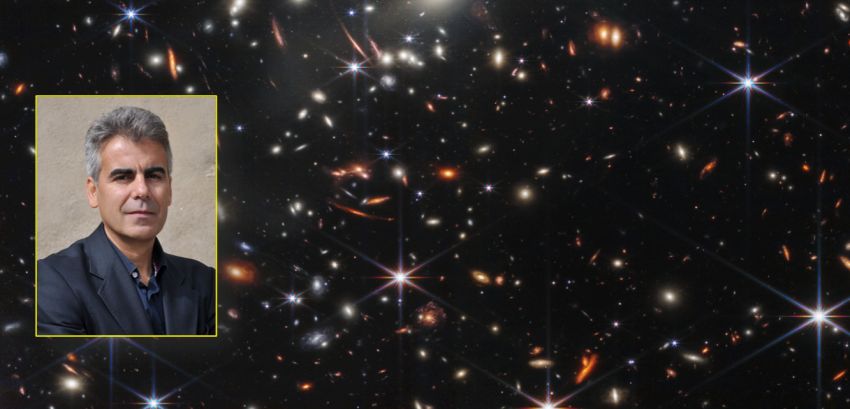All Science News

ERA Chair in Astro-Informatics at ICS-FORTH
The Institute of Computer Science (ICS) of the Foundation for Research & Technology – Hellas (FORTH) is excited to announce that Dr. Jean-Luc Starck of CEA/Saclay (France), with a major financial support by the European Commission of an ERA (European Research Area) Chair, will be leading the efforts on the establishment of a new science direction at FORTH in the emerging field of Astro-Informatics. The new research activity, which is expected to commence in early 2023 and it is also supported by the Institute of Astrophysics (IA) at FORTH, will rely on the local expertise in signal processing, as well as astrophysical data analysis and interpretation using observations from both ground-based and space-born facilities.
“We are extremely happy that our vision to make FORTH and Crete a leader in developing sophisticated state-of-the-art signal processing and machine learning techniques which can be applied to the latest astronomy space missions and observational facilities, is becoming a reality”, said Prof. Panagiotis Tsakalides the coordinator of the project appropriately named “TITAN” and head of the Signal Processing Lab at ICS-FORTH. “Having a scientist of the caliber and international recognition of Dr. Jean-Luc Starck committing a substantial fraction of his time to serve as an ERA Chair at FORTH, as well as using his experience to define the science directions in which we should focus our efforts is critical for achieving our ambitious goals.”
Over the period of the next five years, TITAN will be funded with a total of 2.5 million euros, and will enable the organization of summer schools and workshops in Crete, support visits by experts in the field to interact with the local staff. Moreover, it will fund several postdoctoral researchers and PhD students who will conduct research in the cutting-edge area of big data astrophysics by developing novel analysis techniques. TITAN will unlock the potential of FORTH, the Cretan region and Greece to be part of future space missions, such as ESA’s Euclid and NASA’s James Webb Space Telescope, and it will create opportunities for innovative synergies with the space sector.
“FORTH is the premier research institute in Greece and among the best in Europe. It has been a personal choice and a real pleasure collaborating with members of both the computer science and the astrophysics institutes for over a decade on a variety of EC projects” said Dr. Starck, who also continued: “We have been able to already produce high quality science and I do look forward to the new opportunities associated with the ERA Chair in Astro-Informatics. I am confident that we will be able to establish a long-term interdisciplinary activity that will be a real added value for FORTH”.
The Director of ICS-FORTH, Prof. Dimitris Plexousakis welcomed the new activity and added, “Automation, as well as major advances in computer technology, in particular over the past decade, are producing huge quantities of data in all fields and the trend will increase even more in the near future. The need for developing sophisticated methods to make sense of the wealth of information contained is the only way to proceed forward. ICS-FORTH has already been contributing to this direction and our new ERA Chair will greatly enhance these efforts.”
“The ERA Chair in Astro-Informatics at FORTH will provide a major leap forward for the future of astrophysics at the academic ecosystem of FORTH and the University of Crete” said the Prof. Vassilis Charmandaris, the Director of IA-FORTH. “I expect that the increase in the number of scientists working in this field at FORTH, the leadership of Dr. Starck as an ERA Chair and the close interactions established between the two institutes will result in a “n2 effect” which is extremely important for a small institute such as IA-FORTH. We look forward to be part of this great endeavor.”







